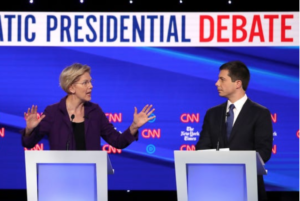
Russia has blockaded two Ukrainian seaports in the Sea of Azov, an important body of water in Eastern Europe connected to the Black Sea. This news comes after Ukraine declared martial law in response to the impounding of three Ukrainian ships and detaining of 24 Ukrainian soldiers by Russia. Globally, Russia has been denounced but there is yet to be any tangible effort to impede Putin’s efforts. The story on both sides is murky, with Ukraine treating it as offensive aggression and Russia chalking it up to a mere border dispute.
And to Putin, it’s just that: a border dispute. One that started with the fall of the USSR, and one that will not end until the reclamation of the nation’s former glory. Putin has been chinking away at Ukraine for years. He began in 2014 with the annexation of Crimea, a peninsula on the northern coast of the Black Sea that is home to a major Black Sea port, Sevastopol.
A former KGB member, Putin idealized the USSR. Politifact.com quotes Putin:
“Above all, we should acknowledge that the collapse of the Soviet Union was a major geopolitical disaster of the century. As for the Russian nation, it became a genuine drama. Tens of millions of our co-citizens and co-patriots found themselves outside Russian territory. Moreover, the epidemic of disintegration infected Russia itself.”
Putin’s formative years in the KGB helped outline his current political aspirations. Putin sees the citizens of non-Russian USSR states as Russians. He sees them as part of his coalition. This was the basis for the annexation of Crimea. Russia aggressively pushed for a referendum on Russian statehood. It passed with ninety-seven percent in favor of joining the Russian Federation, and while there are pro-Russian sentiments within Ukraine and Crimea, the sheer margin of the vote brings up its own questionable authenticity. Russia has a history of undemocratic elections — including, but not limited to, its own presidential elections — so it’s easy to visualize a scenario in which Putin faked the results of the referendum to justify marching in with troops.
While the annexation of Crimea has military logic behind it (significant warm water ports, something that Russia currently lacks), it is important to view Russia’s actions in Ukraine through the lens of its leader. Ukraine’s main significance to Russia is not held within its strategic appeal, but rather it’s symbolism and cultural importance to Putin. Appeasement will not work if Putin’s goal is to reclaim the glory, and the people, of the USSR.
-Kevin Hanley



